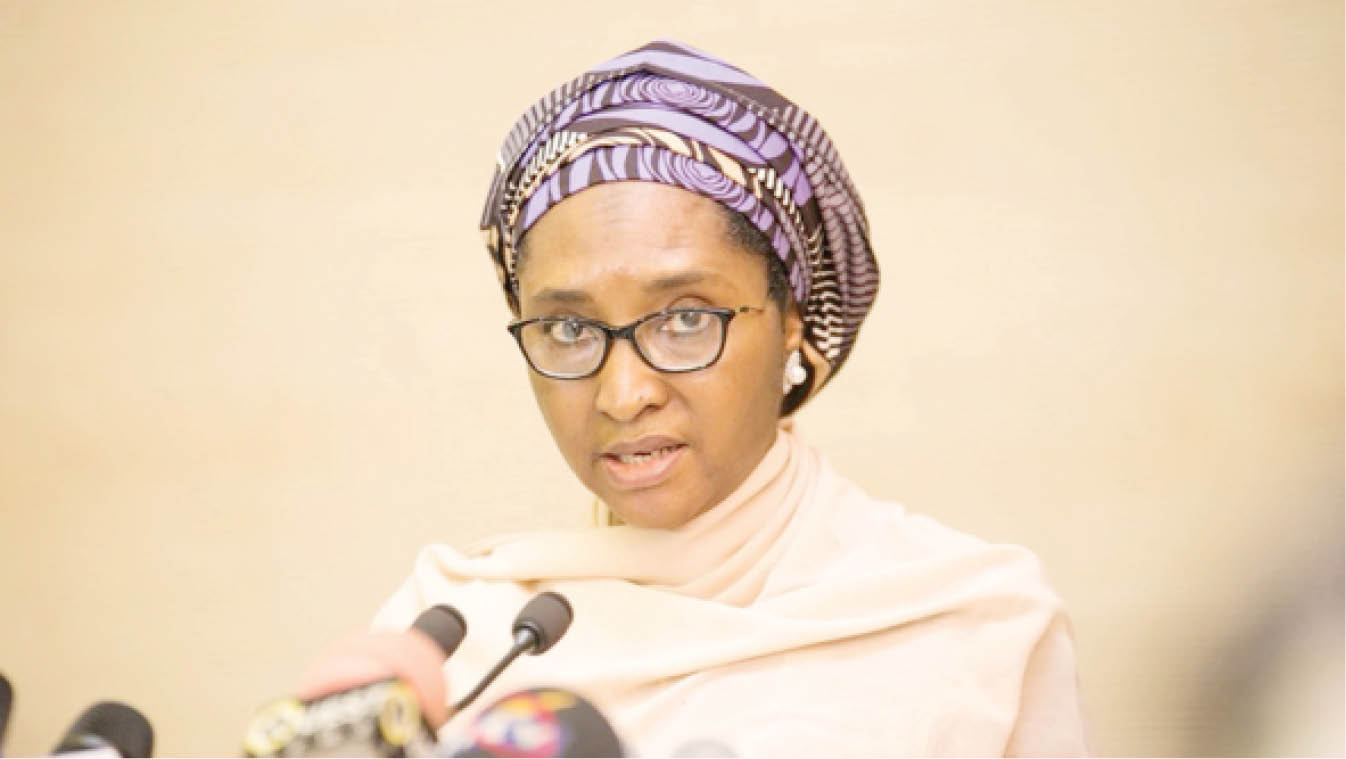Implementing Oronsaye report on civil service
The Minister of Finance, Budget and National Planning, Zainab Ahmed, hinted last week that President Muhammadu Buhari is disposed towards implementing the recommendations of Steven Oronsaye committee report on the restructuring and rationalisation of federal government parastatals, commissions and agencies. The 800-page report, submitted during former President Goodluck Jonathan’s tenure, was hailed for its courage […]

Minister of Finance, Budget and National Planning, Mrs. Zainab Shamshuna Ahmed.
The Minister of Finance, Budget and National Planning, Zainab Ahmed, hinted last week that President Muhammadu Buhari is disposed towards implementing the recommendations of Steven Oronsaye committee report on the restructuring and rationalisation of federal government parastatals, commissions and agencies. The 800-page report, submitted during former President Goodluck Jonathan’s tenure, was hailed for its courage in recommending the abolishment and merger of 102 government agencies and parastatals. The report noted that there were 541 statutory and non-statutory government parastatals, agencies and commissions with roles that overlap or are duplicate of several others. Based on the Oronsaye committee’s recommendations, some should be scrapped, while others should be merged, so that a total of 161 may be maintained.
Speaking on the steps being taken, the minister said, “The president has approved that this administration should implement the Oronsaye report. It has reviewed the whole of the size of government and has made very significant recommendations in terms of reducing the number of agencies and that would mean merging some agencies. This is a report that has been in place for a long time and there hasn’t been implementation, but the president has approved that this should be implemented and we have conveyed Mr. president’s approval to the arms of government that are responsible for this and that will be the Office of Secretary of Government of the Federation and the Head of Civil Service of the Federation.”
Nigeria’s civil service, over the years, has been dysfunctional, and this fact has not been lost on successive governments. As a result, there have been several attempts to correct the anomalies in the system; Oronsaye’s committee was the ninth of such measures. They include Morgan Commission (1963); Eldwood Commission (1966); Adebo Commission (1971); Udoji Commission (1972); Dotun Phillips Commission (1985); Decree No. 43 (1988); Ayida Review Panel (1994); Civil Service reform under President Olusegun Obasanjo (1999-2007); and Steven Oronsaye Panel (2010-2012). In spite of these efforts, the civil service has not given the kind of support needed for government to boost the economy and be relevant to the people.
The thrust of Oronsaye committee’s report is the merger of some agencies whose activities overlap; change of names and nomenclatures; amendments to the Acts setting them up; tenure of chief executive officers of agencies; number and tenure of commissioners and the like. Therefore, the main aim of the report was how to reduce recurrent expenditure, so as to boost capital expenditure.
In as much as we align with the position of the report on cost cutting, to reform the civil service requires a lot of re-engineering, re-orientation, and re-awakening of public servants to their importance. First, cost cutting is just like cutting the top of grasses, but what we need is to remove the roots of inefficiency from the civil service. Some of the causes of the inefficiency and lack of effectiveness in the civil service include lack of capacity, selfish political interference, nepotism, corruption, ineptitude, and outright lackadaisical attitude to work. These are issues that need to be dealt with, not just the merger of statutory and non-statutory parastatals, agencies and commissions.
We call on the bureaucracy, as they review the report for implementation, to put in place measures that would lead to the re-orientation of civil servants to the fact that they remain the driving wheel of the economy. When this wheel is clogged with corruption, the country cannot make progress. The reform should put in place programmes and strategies for capacity building. It should include a system that would throw up the best and ensure that right people are put in right places, based on their experience, capacity, and commitment to the job, not their political affiliation, ethnicity, religion and region. Incompetent civil servants have risen to the top on the crest of these anomalies. In a nutshell, the reform needed to enhance service delivery in civil and public service goes beyond rationalisation of agencies.
Anything worth doing is worth doing well.
